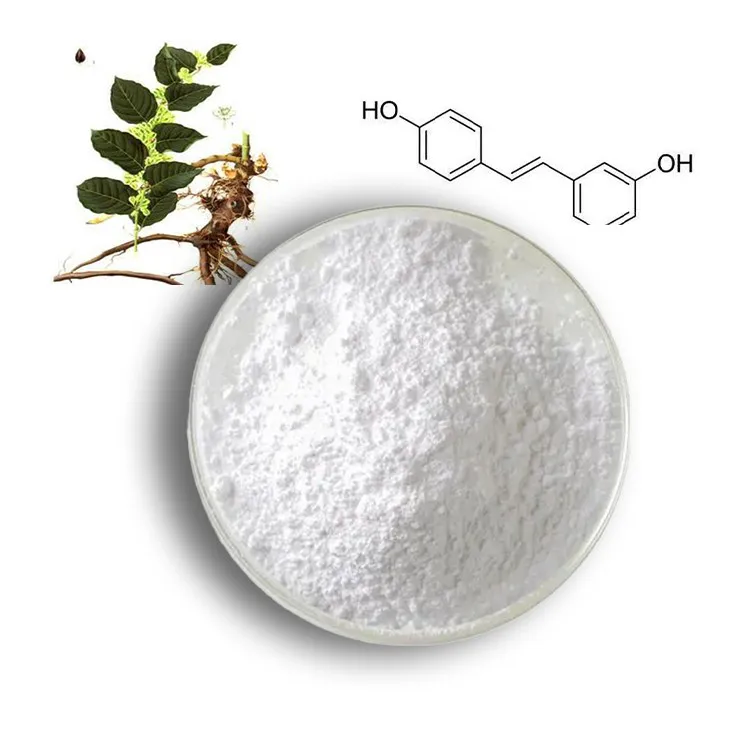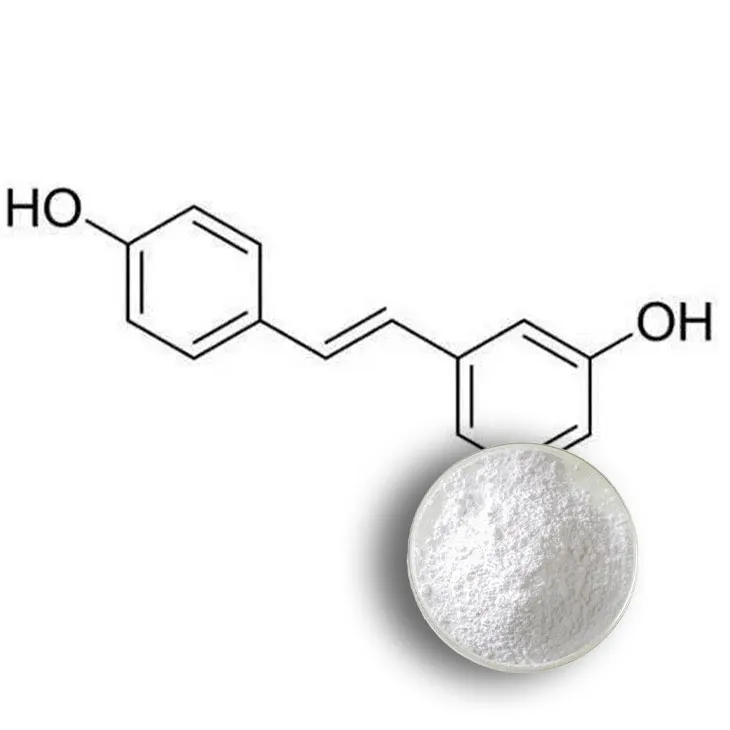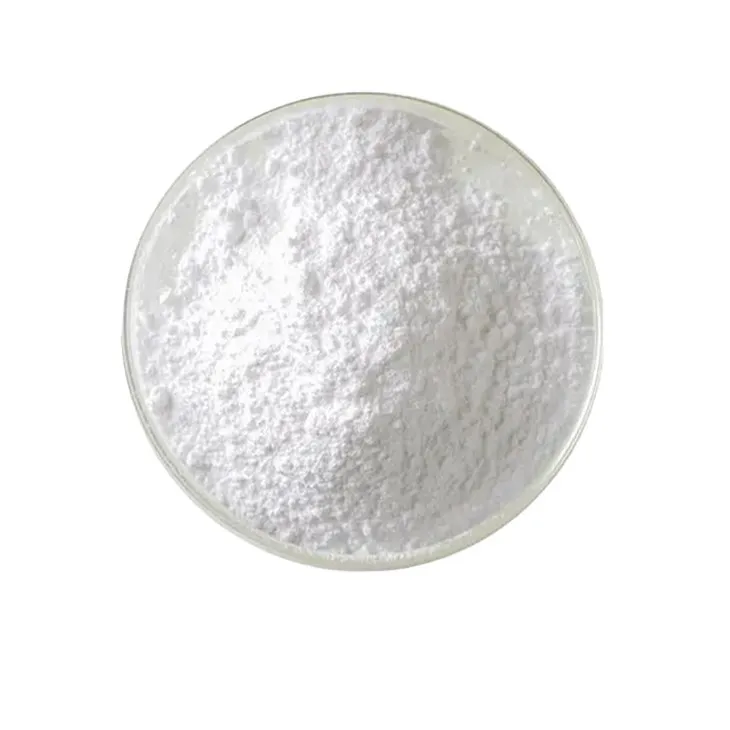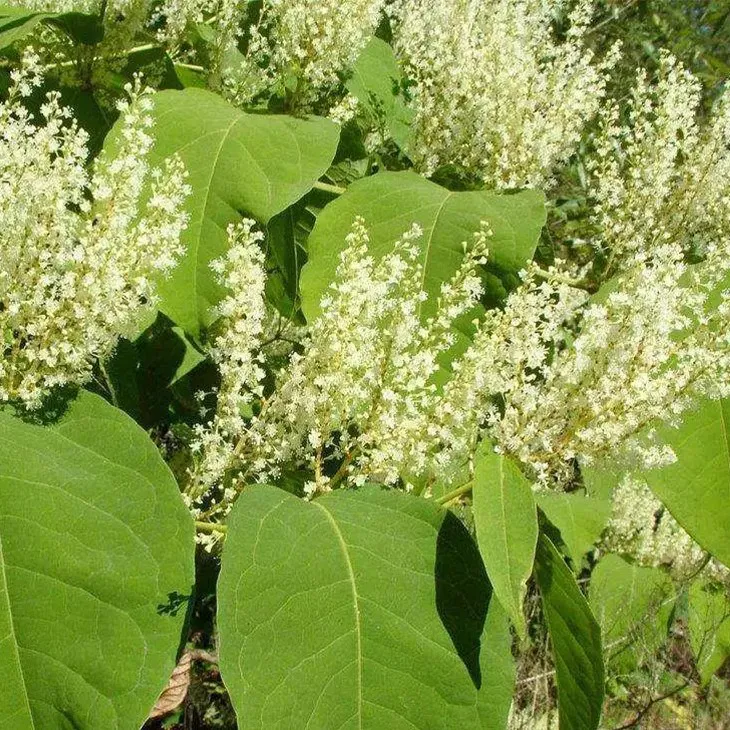- 0086-571-85302990
- sales@greenskybio.com
Resveratrol extract
2024-11-12

1. Introduction
White Resveratrol extract has been a subject of extensive research in recent years. It is a natural compound that is found in various plants, including grapes, peanuts, and some berries. This extract has attracted significant attention due to its potential health benefits, which range from antioxidant and anti - inflammatory properties to possible effects on longevity.

2. Origin of White Resveratrol extract
White Resveratrol extract is derived from a variety of plant sources. Grapes are one of the most well - known sources, especially in the skins of red grapes. The presence of resveratrol in grapes has led to its association with the health benefits of red wine. However, it is important to note that excessive alcohol consumption can have negative health effects, and resveratrol can be obtained from other non - alcoholic sources as well. Peanuts also contain resveratrol, making them an interesting source for those who may not consume grapes or wine. Additionally, certain berries such as blueberries and cranberries are sources of this natural compound. The fact that resveratrol is found in multiple plant sources suggests that it may play an important role in plant survival and defense mechanisms, which could potentially translate to health benefits in humans.

3. Antioxidant Properties
One of the most studied aspects of white resveratrol extract is its antioxidant properties. Antioxidants are substances that can prevent or slow damage to cells caused by free radicals. Free radicals are unstable molecules that are produced during normal cellular metabolism as well as in response to environmental factors such as pollution, radiation, and cigarette smoke. These free radicals can cause oxidative stress in the body, which is associated with a wide range of health problems.
Oxidative stress has been linked to aging, as it can damage DNA, proteins, and lipids in cells over time. This damage can lead to the development of wrinkles, age - spots, and a general decline in the function of organs and tissues. Resveratrol extract works by scavenging free radicals, effectively neutralizing their harmful effects. This antioxidant activity can help protect cells from damage and may contribute to maintaining a youthful appearance and healthy organ function.
Another area where oxidative stress plays a significant role is in cardiovascular diseases. Free radicals can damage the lining of blood vessels, promote the formation of plaques, and increase the risk of heart attacks and strokes. By reducing oxidative stress, resveratrol may help improve cardiovascular health. Some studies have shown that resveratrol can reduce inflammation in blood vessels, lower blood pressure, and improve lipid profiles, all of which are beneficial for heart health.
Cancer is also associated with oxidative stress. DNA damage caused by free radicals can lead to mutations that may initiate the development of cancer. Resveratrol's antioxidant properties may help prevent this initial DNA damage. Additionally, resveratrol has been shown to have anti - cancer effects in some laboratory and animal studies. It may inhibit the growth and spread of cancer cells by interfering with various cellular processes involved in cancer development, such as cell division and angiogenesis (the formation of new blood vessels to supply tumors).

4. Anti - Inflammatory Effects
In addition to its antioxidant capabilities, white resveratrol extract has also shown potential anti - inflammatory effects. Chronic inflammation is a key factor in many diseases, including autoimmune diseases, neurodegenerative diseases, and metabolic disorders. Inflammatory processes are a normal part of the body's immune response, but when they become chronic, they can cause damage to healthy tissues.
Resveratrol may act on various pathways involved in inflammation. It can inhibit the production of pro - inflammatory cytokines, which are signaling molecules that promote inflammation. For example, in the case of arthritis, a condition characterized by joint inflammation, resveratrol has been studied for its potential to reduce pain and swelling. By reducing inflammation in the joints, it may improve the quality of life for arthritis patients.
Studies have also suggested that resveratrol may have a role in reducing inflammation in the brain. Inflammatory processes in the brain have been implicated in neurodegenerative diseases such as Alzheimer's and Parkinson's disease. Resveratrol may help protect brain cells from inflammation - related damage, although more research is needed to fully understand its potential in these complex neurological conditions.

5. Potential Impact on Longevity
Resveratrol has been investigated for its potential impact on longevity. Some studies in animals have suggested that it may extend lifespan by influencing certain cellular pathways related to aging. One such pathway involves the activation of sirtuins. Sirtuins are a class of proteins that are involved in regulating cellular metabolism, stress response, and aging.
When sirtuins are activated, they can promote cellular repair and maintenance, which may contribute to a longer lifespan. Resveratrol has been shown to activate sirtuins in some animal models, leading to improved health and increased lifespan. However, it is important to note that the results from animal studies may not directly translate to humans. More research is needed to fully understand the implications of resveratrol on human longevity.
Another aspect related to longevity is the potential of resveratrol to improve overall health in later years. By reducing the risk of age - related diseases such as cardiovascular diseases, cancer, and neurodegenerative diseases through its antioxidant and anti - inflammatory properties, resveratrol may contribute to a healthier and potentially longer life.
6. Dosage and Safety
When considering the use of white resveratrol extract, it is important to understand the appropriate dosage and safety aspects. Currently, there is no standardized recommended dosage for resveratrol in humans. Dosages used in research studies vary widely, depending on the type of study and the intended outcome.
While resveratrol is generally considered safe when consumed in moderate amounts from natural food sources, high - dose supplements may carry some risks. Some potential side effects that have been reported with high - dose resveratrol supplementation include gastrointestinal problems such as nausea, diarrhea, and abdominal pain. Additionally, resveratrol may interact with certain medications, so it is important to consult a healthcare provider before starting any resveratrol supplement, especially if you are taking other medications.
7. Conclusion
Overall, white resveratrol extract is a fascinating natural substance with a wide range of potential health benefits. Its antioxidant and anti - inflammatory properties, along with its potential impact on longevity, make it an interesting compound for further research. However, more studies are needed to fully understand its mechanisms of action, optimal dosage, and long - term safety in humans. As with any natural supplement, it is important to approach the use of resveratrol extract with caution and under the guidance of a healthcare professional.
FAQ:
What are the main sources of white resveratrol extract?
White resveratrol extract mainly originates from various plants such as grapes, peanuts, and some berries.
How does resveratrol extract combat oxidative stress?
Resveratrol extract combats oxidative stress by scavenging free radicals. Free radicals are unstable molecules that can damage cells and DNA, and by removing them, resveratrol helps to protect the body from the harmful effects of oxidative stress.
What are the potential anti - inflammatory effects of white resveratrol extract?
White resveratrol extract has shown potential anti - inflammatory effects. Chronic inflammation is a key factor in many diseases, and resveratrol may contribute to overall health improvement by reducing inflammation. It has been studied for its possible role in alleviating symptoms of arthritis and other inflammatory conditions.
Can resveratrol really extend lifespan?
Some studies in animals have suggested that resveratrol may extend lifespan by influencing certain cellular pathways related to aging, such as sirtuin activation. However, more research is needed to fully understand its implications in human longevity.
What are the overall potential health benefits of white resveratrol extract?
White resveratrol extract is a natural substance with a wide range of potential health benefits. It has antioxidant properties which combat oxidative stress, potential anti - inflammatory effects which may help in various diseases, and it has been investigated for its potential impact on longevity, although more research is needed in this regard for humans.
Related literature
- Resveratrol: A Review of Its Anti - Cancer Effects"
- "The Antioxidant and Anti - Inflammatory Properties of Resveratrol: Implications for Cardiovascular Health"
- "Resveratrol and Aging: Role in Lifespan Extension"
- ▶ Hesperidin
- ▶ citrus bioflavonoids
- ▶ plant extract
- ▶ lycopene
- ▶ Diosmin
- ▶ Grape seed extract
- ▶ Sea buckthorn Juice Powder
- ▶ Beetroot powder
- ▶ Hops Extract
- ▶ Artichoke Extract
- ▶ Reishi mushroom extract
- ▶ Astaxanthin
- ▶ Green Tea Extract
- ▶ Curcumin Extract
- ▶ Horse Chestnut Extract
- ▶ Other Problems
- ▶ Boswellia Serrata Extract
- ▶ Resveratrol Extract
- ▶ Marigold Extract
- ▶ Grape Leaf Extract
- ▶ blog3
- ▶ blog4
- ▶ blog5
-
Organic Tongkat Ali extract powder factory.
2024-11-12
-
How to make powder with ashwagandha extract.
2024-11-12
-
Rosehip extract manufacturers from China.
2024-11-12
-
The best cat's claw extract in nature.
2024-11-12
-
Chinese Dandelion Leaf Extract Suppliers.
2024-11-12
-
Mangosteen extract powder
2024-11-12
-
Black Garlic Extract
2024-11-12
-
Red Vine Extract
2024-11-12
-
Calendula Extract
2024-11-12
-
Motherwort Extract
2024-11-12
-
Green coffee bean Extract
2024-11-12
-
Kidney Bean Extract
2024-11-12
-
Saw Palmetto Extract
2024-11-12
-
Tamarind extract powder
2024-11-12
-
Saffron Extract Powder
2024-11-12





















